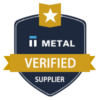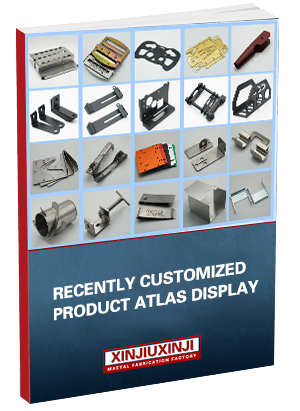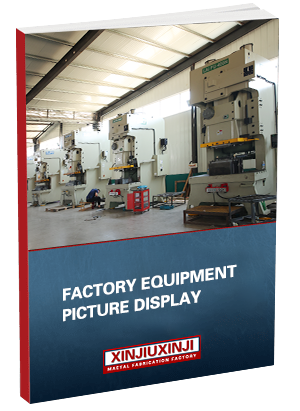A Precision Metal Manufacturing Process
Metal Stamping: A Precision Manufacturing Process
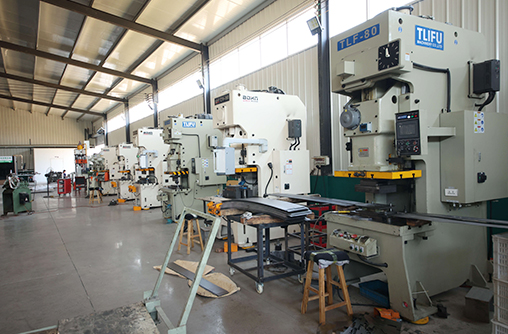
Metal stamping service is a versatile and highly efficient manufacturing process that involves shaping or cutting metal sheets into specific forms using a die. By applying high pressure through a stamping press, the metal is precisely shaped or cut, allowing for a variety of techniques like punching, blanking, bending, embossing, and deep drawing. This process is ideal for producing large quantities of identical parts with high precision and minimal material waste.
Key Benefits
High Precision and Consistency
Once the die is set, metal stamping delivers parts with exceptional accuracy and uniformity, ideal for industries that demand tight tolerances and high-quality standards.
Cost-Effective for Mass Production
Metal stamping service is highly cost-efficient for large-scale production runs. The cost per part decreases significantly with volume, making it a preferred option for high-volume manufacturing needs.
Fast Production Speed
Known for its speed, metal stamping ensures fast production times, which is crucial for industries with high demand for large quantities of parts.
Versatility Across Materials and Designs
Metal stamping service can be applied to a wide range of materials and is capable of producing both simple and complex parts, making it suitable for a variety of industries.
Minimal Material Waste
The precision of the stamping process reduces material waste, which not only lowers production costs but also makes metal stamping an environmentally friendly manufacturing solution.
Advanced 400-Ton Stamping Equipment
Our cutting-edge 400-ton stamping press combines power, precision, and energy efficiency. With CNC controls and advanced hydraulics, this machine is designed for high-speed production while ensuring superior accuracy. It is particularly well-suited for demanding industries like automotive and aerospace, where both quality and cost efficiency are paramount.
Application
Automotive Industry:
Metal stamping is used to produce parts like body panels, brackets, trim, and structural components for vehicles.
Aerospace:
Lightweight and durable parts for aircraft, such as air frame components and interior fittings, are manufactured using metal stamping.
Electronics:
Small precision parts, including connectors, enclosures, and terminals for electronic devices, are commonly produced through metal stamping.
Consumer Goods:
Metal stamping is used in the production of components for household appliances, tools, and other consumer products.
Medical Devices:
The precision of metal stamping is essential for manufacturing surgical tools, medical instruments, and parts for medical devices.
Electrical Equipment:
Metal stamping is used to create electrical components such as transformers, circuit boards, and enclosures for electrical equipment.
Projects Best Suited for Metal Stamping Service
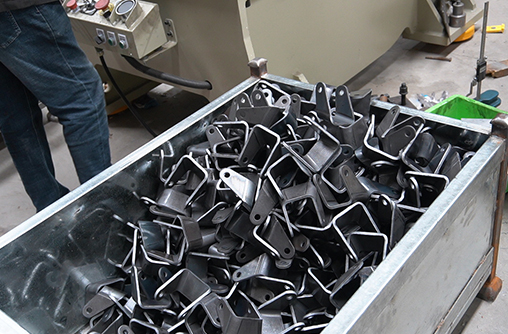
- High Precision Parts:Ideal for components that require accurate dimensions and consistent performance.
- High-Volume Production:Perfect for projects that require large quantities of identical parts in a short time frame.
- Complex Shapes:Metal stamping is ideal for parts with intricate designs, including holes, bends, and embossments.
- Thin to Medium-Gauge Metals:Excellent for producing thin metal sheets, often used in automotive panels or electronics enclosures.
Materials Used in Metal Stamping Service
- Steel:The most common metal used in stamping, including carbon steel, stainless steel, and alloy steel. Known for strength, durability, and cost-effectiveness.
- Aluminum:Lightweight, corrosion-resistant, and often used in automotive and aerospace applications.
- Brass:Offers excellent machinability and corrosion resistance, ideal for electronics and decorative applications.
- Copper:Used in electrical components due to its superior conductivity.
- Titanium:Lightweight and strong, commonly used in aerospace and medical device manufacturing.
- Nickel:Known for its heat and corrosion resistance, making it suitable for use in marine and chemical industries.






 +86 18892239158
+86 18892239158
